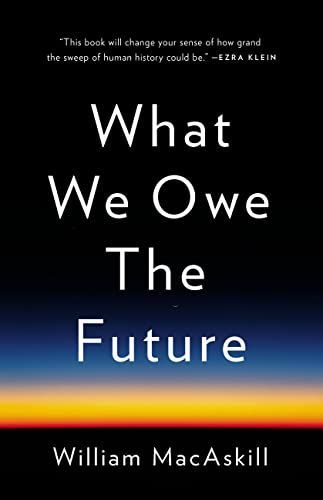
What We Owe the Future
An Oxford philosopher makes the case for “longtermism” — that positively influencing the long-term future is a key moral priority of our time.
The fate of the world is in our hands. Humanity’s written history spans only five thousand years. Our yet-unwritten future could last for millions more — or it could end tomorrow. Astonishing numbers of people could lead lives of great happiness or unimaginable suffering, or never live at all, depending on what we choose to do today.
In What We Owe The Future, philosopher William MacAskill argues for longtermism, that idea that positively influencing the distant future is a key moral priority of our time. From this perspective, it’s not enough to reverse climate change or avert the next pandemic. We must ensure that civilization would rebound if it collapsed; counter the end of moral progress; and prepare for a planet where the smartest beings are digital, not human.
If we make wise choices today, our grandchildren’s grandchildren will thrive, knowing we did everything we could to give them a world full of justice, hope and beauty.
Reviews
maximilian becht@maxicozy
Keven Wang@kevenwang
hannie@fin
MJ@mikejonesberlin
Christopher Wheeler@woolgatherist
Martin Heuer@maddin
Mustafa Hussain@mhussain
Zhomart M@zhomart
Yuval Shoshan@yuvals
Tuago@iagomr
Yan Aung@juni2or
Darren O’Callaghan@darrenocallaghan
Drew Spartz@drewspartz